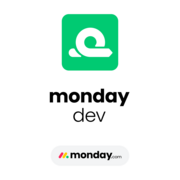
Best Application Lifecycle Management (ALM) Tools 2026
Application Lifecycle Management (ALM) is closely related to Agile Development but is broader in scope. Where agile development is primarily a way of organizing development cycles within the product development process, ALM is broader in scope and is concerned with development, but also delivery and maintenance of the software over the life of the application. ALM covers a product from inception to retirement, not just the development component of a product’s life.
We’ve collected videos, features, and capabilities below. Take me there.
All Products
Learn More about Application Lifecycle Management (ALM) Software
What are Application Lifecycle Management (ALM) Tools?
Application Lifecycle Management (ALM) Tools allow developers to collaboratively track and plan application and software development from initial planning through retirement. ALM tools help with governance, design, development, testing, deployment, and maintenance by providing a standardized environment for software development. Since ALM software centralizes the people, processes, and tools that go into application and software development, they are useful for increasing productivity and ensuring quality.
ALM Tools assist with development methodologies and continuous delivery by managing system requirements, automating code testing, and deploying application updates. ALM products also offer a wide range of observability and traceability tools, including software performance, progress tracking, and visualized reports. These allow for a seamless management of products across all stages of the application development and DevOps process. ALM tools are versatile, as virtually any industry that needs efficient application development solutions can find a suitable product. Finally, ALM tools tend to have integrated communication channels for collaborators to quickly share data and information with each other.
ALM Tools combines aspects of Bug Tracking Software, Collaboration Tools, Project Management Software, Quality Management Software, and Requirements Management Software onto one platform. The clearest ALM distinction is the tendency for ALM Tools to focus on ways for developers to work collectively using integrated communication channels and rapid data sharing. ALM tools also help facilitate the development, feedback, and deployment aspects of DevOps Software by providing a central platform for these processes to be managed.
Application Lifecycle Management (ALM) Tools Features
ALM Tools typically include the following features:
- Governance and requirements management
- Estimation and planning
- Project management
- Portfolio management
- Source code management
- Test case management
- Bug, issue, and task tracking
- Document management
- User level management
- Compliance and regulation management
- Software deployment and release management
- Manual and automated testing support
- Knowledge base
- Integrated instant messaging and chat
- Audit and change history
- Customizable visualization and reporting features
- Project scalability
- On-premise, cloud-based, or web-based hosting
- Customizable dashboards and GUI
- Integrations with third-party software
- Compatible with waterfall, agile, or hybrid development methodologies
Application Lifecycle Management (ALM) Tools Comparison
When comparing ALM Tools, these are the most common considerations:
Development team size. While ALM Tools will be helpful for teams of any size, some products are geared more toward enterprise-sized teams than smaller ones. Some platforms support up to a thousand users at once. This is an important consideration because you’ll want to make sure that the ALM tool is powerful enough to support the entirety of your development team without putting a strain on your budget, as the number of users typically impacts cost of the product.
Application development plans. Current or future development plans will determine which ALM Tools are best for you. If you need a new tool mid-development, or you want to add a few modules rather than a full suite, Helix ALM provides individual module licensing. If you’re needing a tool that lets you make multiple products at once, Polarion supports reusable code and data schemes to make application branching easier.
Version control. Keeping a history of application and software updates is important for the security of your product, as it can provide valuable backup data. If nothing else, version control is often necessary to maintain regulatory and SLA compliance. As such, you’ll want to make sure your ALM tool makes this process easy for you. Rocket Aldon automatically creates an inventory of builds and packaging, making version control and archiving simple.
Legacy application support. If you intend to switch development tools or methodologies, you may want to make sure that your tool allows you to support previous versions. This may be especially important for customer-facing industries that see users using older software or application versions for any reason. OneOps offers interlinking legacy management systems.
Pricing Information
ALM Tools pricing tends to use subscription models ranging from $10 to $500 per month at the lowest tiers. Vendors will also typically create price plans suited for your business. Many vendors offer free trials and demos. There are many free open-source tools, like GoCD, but these require manual installation and maintenance by the end user..
More Resources
An ALM Tool’s effectiveness for you may depend on your development methodology. The following article explains two of the most common methods, which should help you determine which ALM tool is appropriate for your team:
Application Lifecycle Management (ALM) FAQs
Why is application lifecycle management important?
What are the best application lifecycle management tools?
The top rated application lifecycle management tools are as follows:
























